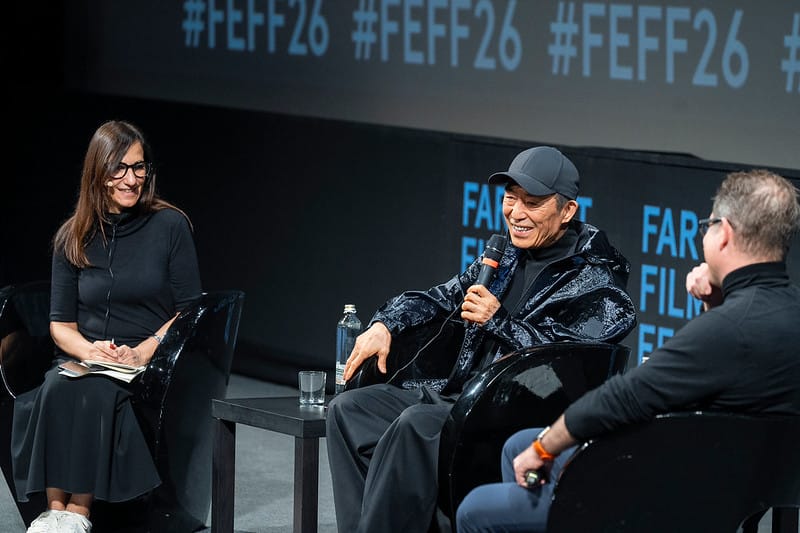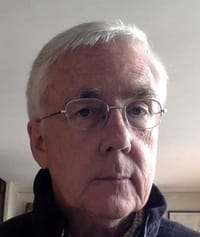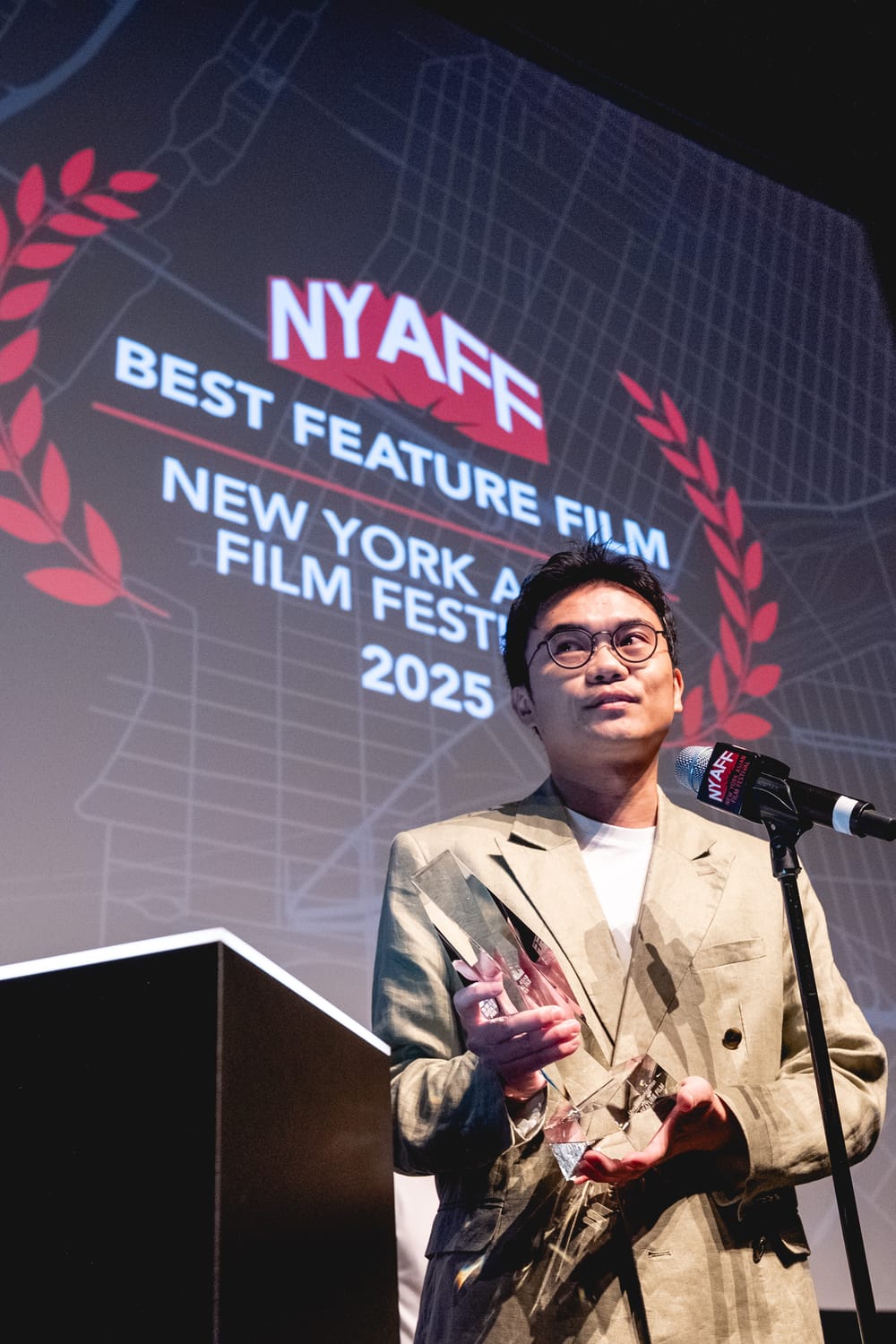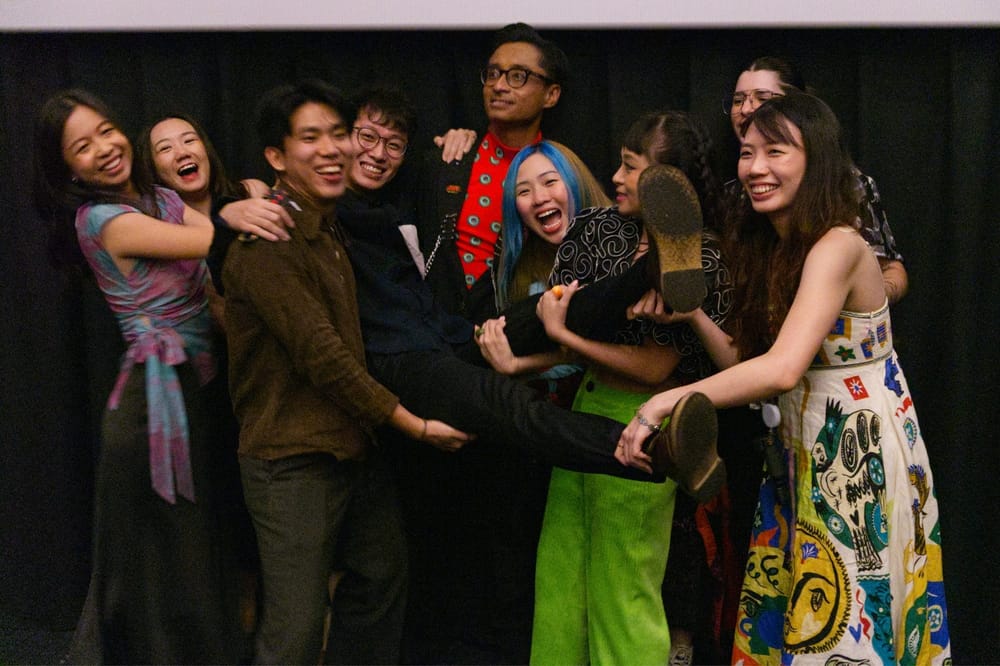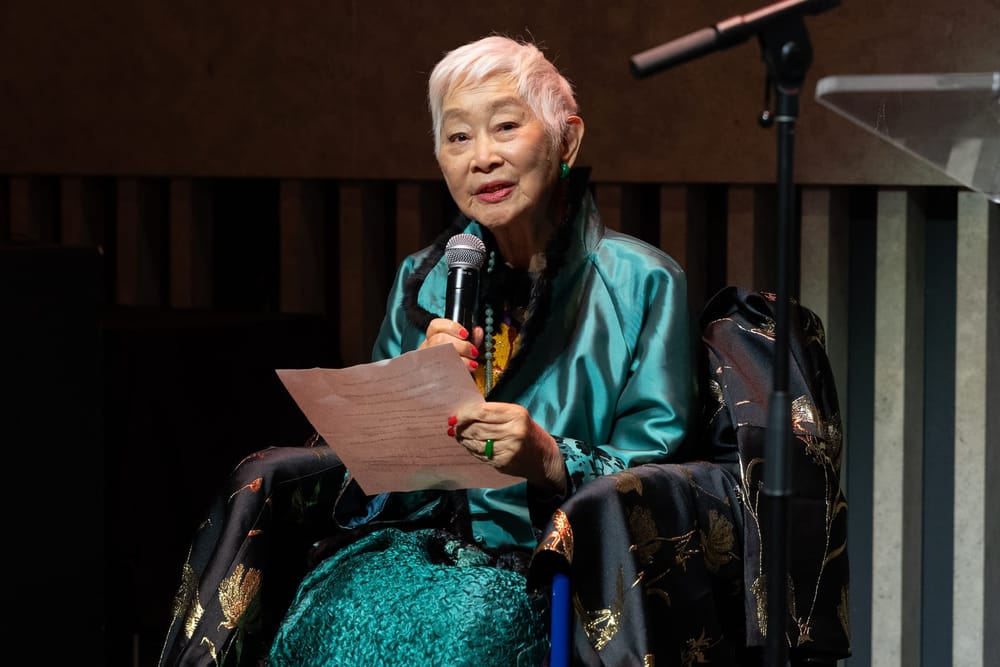By Daniel Eagan
You might think an acclaimed filmmaker like Zhang Yimou would be content to rest on his laurels. The director of over two dozen features, as well as an award-winning cinematographer and actor, Zhang continues to make movies, direct operas, and organize events like 2022's Winter Olympic ceremonies.
In China, we are not afraid of being slow – only of stopping," Zhang said at last year’s 26th Far East Film Festival (FEFF) in Udine, Italy.
Zhang was in Udine to accept the Golden Mulberry for Lifetime Achievement award – and to screen “Under the Light,” a complex thriller that marks the director's first contemporary movie in over a decade.
“Aa third of my films are good. A third are okay. And a third, maybe not that good,” Zhang said. “I don’t set out expecting each film to be a masterpiecee. I just keep making films.”
The filmmaker admitted that nothing could compare to directing his debut feature, “Red Sorghum.” “All the others are more or less repeating what you have already done. The first one is unforgettable.”
Even so, Zhang continues to work, auditioning performers and reading scripts, searching for a project that will “move” him.
“What makes a good story?” he mused. “I may not know exactly what it is, but it must touch me. That feeling is precious, and it's something technology can't create. It's that way now, and it will be the same in 2030 or 2040. We are animals who want to share our feelings.”
According to the director, our current multimedia era means anyone can become a filmmaker. “Entry barriers are now low,” he said. “Anyone can make and share short films. I watch them online and think, 'Wow, these kids are good.' They're making high quality films with real depth.”
Zhang admitted that viewers today find his classics like “Raise the Red Lantern” too slow. Technology speeds everything up. Forty years from now, today's films might seem too slow.
“But the more technology develops, the more precious feelings become. On subways, everybody is (looking at their) phones. So then ask yourself, why do people still go to theaters?”
Zhang started in still photography, trained as a cinematographer at the Beijing Film Academy, and shot Chen Kaige's directing debut, “Yellow Earth” in 1984. Its success at film festivals led to other cinematography assignments.
While preparing Old Well in 1986, director Wu Tianming asked Zhang to take the lead role, a rural farmer.
“I had no training as an actor,” Zhang recalled. “I'm also clumsy. But I said, 'Why not?' I would be able to introduce a new style of acting — mainly, not being able to act."
Zhang did spend three years training to become a farmer before entering the film academy, which may be a reason why he won acting awards in China and Tokyo for “Old Well.” As a reward, he received his first directing assignment. Festivals provided a way for Zhang to break through to international markets. His voice catches when he remembers bringing “Red Sorghum” to Berlin, with no idea how viewers would respond.
“Cinema can't exist without festivals,” he said. “They are the main platform for our movies because they might not be seen in theaters where the box office dictates what is shown. Festivals are sometimes the only way for younger filmmakers to tell their stories.”
Zhang steered clear of anything that might seem controversial to Chinese authorities. He sidestepped political issues with the poise of someone who’s told these stories before. . Like his brief flirtation with Western cinema.
The director experimented with Hollywood production styles for “The Great Wall” (2016), a special-effects blockbuster that starred Matt Damon. He remembered a scene with 1,000 extras being delayed for safety reasons.
“We Asian directors set out for art first,” he complained. “Even if we break a leg, everything can be sacrificed for art. In the West, it's not about art, but about the system.”
“The Great Wall” was not a box-office success. Some of Zhang's recent film releases faced political problems. “Under the Light” was held up for four years. “One Second” was pulled from the Berlin Film Festival "for technical reasons."
More challenging for Zhang is the fact that his films no longer receive the same amount of attention in the West. FEFF set out to counter that impression by staging a mini-retrospective of his classics.
Among them, a sparkling restoration of “To Live,” which won the Grand Prix at Cannes. (Technically it's still banned in China.) The overhaul was sponsored by the festival and overseen by the director. It was one of several restorations screened that were produced by Chiu Fu-sheng, another guest at the festival.
Through Chiu, Zhang met the esteemed Taiwanese director Hou Hsiao-hsien, who served as executive producer on “Raise the Red Lantern.”
“Working as a co-production meant we could attract foreign funds,” Zhang explained. "More money meant we could do better work. And we could do the post-production abroad. For ‘Raise the Red Lantern,’ we did the post in Japan.”
That meant Zhang could improve the technical elements of his films to meet worldstandards. When I praised his use of color in wuxia films like “Hero” and “House of Flying Daggers,” Zhang said he had different priorities today.
“After 10 years of working, I realized that image is not as important as character,” he said. “Everybody can act, but not everyone can become an actor. You have to test, but you don't choose an actor — it's the camera that chooses.”
Since he doesn't speak English or Japanese, Zhang relies on confidence in his experiences to judge performers from those countries. “I may not know what they are saying, but good actors are fascinating even without language.”
Zhang said his approach to staging live events is the same as working on a film. But he was amused when directing Puccini's opera “Turandot” in Florence.
“Working with the Italians, I discovered you had to have coffee breaks. In China, you never stop working. In Italy, you have a man with a watch in his hand. Every now and then he stops and says, 'Let's go have a coffee.'”
Students often come up to Zhang for advice.
“I get asked how to become a director a lot,” he laughed. “I have nothing special tosuggest except maybe education. Everyone starts from the same basics. Today you can find out what you're looking for online. There are no tricks. Emotions are what count. “You may fail at first, but the most important thing is not to give up. Don't succumb to that temptation. You can't be afraid of being alone or isolated in your opinions. Resilience is a virtue. Ability and opportunity coupled together with resiliency. Otherwise, you can't be successful.”


